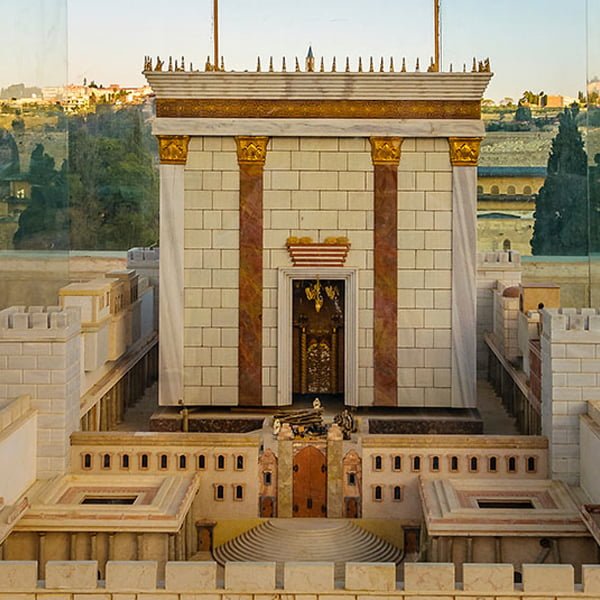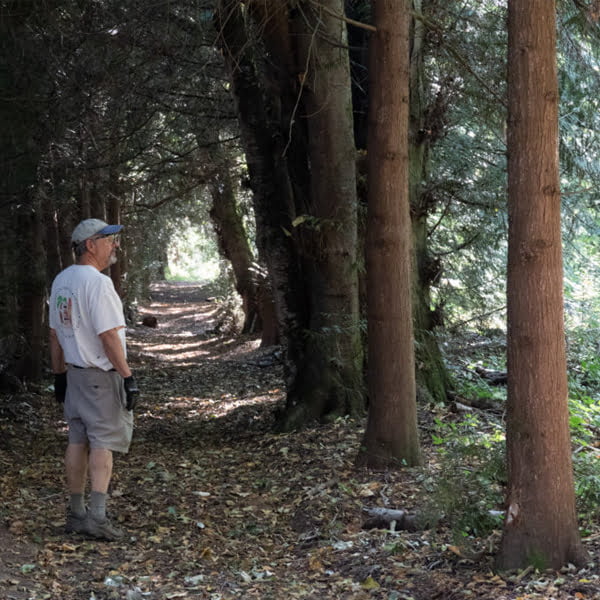Echoes from the Ancients
Imagine if you will, stepping into a vast forest of towering cedars—trees so tall and so majestic, they scrape the heavens themselves. It’s not just the visual grandeur that stops you in your tracks, or even the crisp, evergreen scent that fills the air. No, it’s the profound silence, a kind of hallowed stillness that tells you these aren’t just trees. They are silent sentinels of history, celebrated through millennia, not least of all in the sacred texts of the Bible.
Today, we’re going to explore how cedar, this most noble of trees, figures into biblical lore, symbolizing everything from divine strength to eternal beauty.
Join me, as we dig into the scriptural saga of cedar, a wood so impactful that it was chosen to build the temple of Solomon himself.

Cedar in Biblical Narratives: A Symbol Woven Through Scripture
When you thumb through the weathered pages of the Bible, cedar doesn’t just appear; it stands tall, a beacon of strength and divine favor.
1. A Divine Choice for Sacred Spaces
- Scriptural Instances: In the First Book of Kings, cedar is not merely a building material; it’s a selected material for Solomon’s Temple, chosen for its enduring quality and beauty. This isn’t just a practical choice. It’s a divine directive, a reflection of God’s eternal nature manifest in the physical sanctuary of His presence on Earth.
- Symbolic Interpretation: In these scriptural mentions, cedar transcends its role as wood, becoming a symbol of steadfast faith and spiritual resilience. It is, in every sense, wood deemed worthy of God’s earthly abode.
2. Cleansing and Consecration
- Ceremonial Use: Consider the Book of Leviticus, where cedar wood plays a critical role in the cleansing rituals—used in ceremonies designed to purify and sanctify. It’s no ordinary purifier; it’s a tool for divine cleansing, ordained to restore holiness and order.
- Deeper Meaning: This ritual use of cedar isn’t just about hygiene or cleanliness. It’s a vivid illustration of renewal, representing the transformation from defiled to divine, mirroring the spiritual cleansing that faith offers.
Delve Deeper into the Symbolism of Trees in Sacred Texts
Cedar’s Architectural and Symbolic Legacy in the Ancient World
Cedar’s reputation extended beyond the spiritual realm into the very foundations of ancient civilization’s most significant structures.
- A Storied Resource in Royal Constructions: From the palatial estates of Mesopotamian kings to the storied halls of Pharaonic palaces. Cedar was the material of choice, esteemed not only for its durability and resistance to decay but also for its aromatic qualities that signified luxury and divine favor.
- A Testament to Trade and Diplomacy: The cedars of Lebanon, famed throughout ancient texts, were so highly prized that they became a cornerstone of economic and diplomatic exchanges. Featuring prominently in treaties and trade agreements between empires.
Read Historical Accounts From Stanford Univ. of Cedar in Ancient Architectural Endeavors
The Parables of Cedar: Metaphorical Teachings in the Scriptures
In the grand tapestry of biblical text, cedar also serves as a metaphor, a narrative device that conveys spiritual truths and divine wisdom.
- Growth and Flourishing: In the Psalms, the righteous are said to flourish like the cedar of Lebanon— a metaphor for spiritual prosperity and moral integrity. It’s a vivid image: just as the cedar grows tall and strong, unshakable against the winds, so too does the righteous person stand firm, rooted in the nourishment of divine truth.
- Lessons of Pride and Humility: The prophets use cedar in contrast with the lowly hyssop to teach about humility. Here, cedar represents not just strength but also the dangers of pride, while hyssop embodies humility and simplicity. It’s a powerful reminder that spiritual greatness often comes not from towering stature but from lowly grace.

Reflections for Today: Cedar’s Continued Spiritual Resonance
How do modern scholars and spiritual leaders view cedar’s biblical symbolism? It turns out, quite reverently.
- Environmental Stewardship: In today’s context, the biblical reverence for cedar can inspire a commitment to conserving our planet’s cedar forests. Protecting these ancient giants as a sacred trust for future generations.
- Spiritual Insights: The enduring qualities of cedar continue to serve as a beacon for those seeking spiritual depth. Reminding us of the virtues of strength tempered with humility, and beauty paired with resilience.
How Modern Faith Communities Interpret Biblical Symbols
Conclusion: Cedar, More Than Just Wood
As we’ve journeyed through the scriptural landscapes where cedar trees stand firm. It’s clear that their legacy is not confined to the past. It continues to inspire, to teach, and to provide shelter. In the echoes of ancient texts and the quiet rustle of cedar boughs. We find enduring lessons of faith, resilience, and divine beauty. Lessons as relevant today as they were thousands of years ago.

 Barrel Saunas
Barrel Saunas

